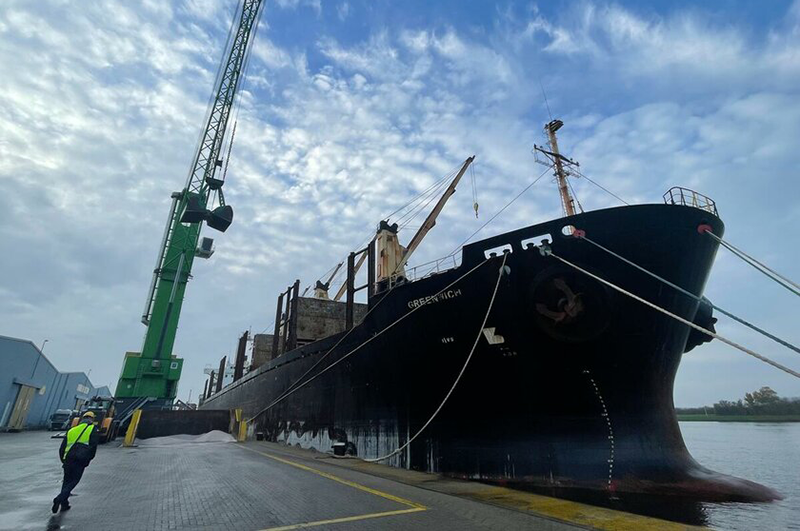- Agriculture
- No Comment
Russia’s massive fertiliser gift to Zimbabwe docks in Mozambican port

By News24.com
- About 26 000 tonnes of fertiliser from Russia are awaiting clearance to Zimbabwe from Beira in Mozambique.
- Zimbabwe’s cropping season was delayed due to erratic and low rainfall.
- The country has maize to last for the next seven months.
Zimbabwe will in the next few days receive about 26 000 tonnes of free fertiliser from Russia as the rainy season gets under way in a relatively slow and delayed start.
In a report titled “Grain of Hope” at the weekend, Russia Today reported the Zimbabwe-bound shipment had docked in Beira, Mozambique, and once the paperwork was processed, it would be headed to Zimbabwe.
The fertiliser is part of a grain gift Russia promised to African countries at last year’s Russia Africa Summit after Moscow withdrew from the Black Sea Grain Initiative, a deal brokered between Russia and Ukraine by the UN and Turkey that allowed 32.9 million metric tonnes of food to be exported from war-torn Ukraine.
Zimbabwe was promised 50 000 tonnes, with half now almost home; another shipment is expected later in the year.
In an interview with the Zimbabwe Broadcasting Corporation, Permanent Secretary in the Ministry of Lands, Agriculture, Fisheries, Water, and Rural Development Professor Obert Jiri said the shipment in question was fertiliser.
Jiri said:
“We hope that the paperwork will be completed soon so that the fertiliser will be in Zimbabwe,” he added.
The fertiliser shipment, according to the government, was made up of 16 000 tonnes of potash and 10 000 tonnes of nitrogen fertiliser.
In mid-December last year, it said, Zimbabwe had planted about 95 156 hectares of maize, a low figure compared to 2022’s 465 707 hectares during the same period.
The low uptake was due to delayed and erratic rains.
According to Jiri, the country’s reserves stood at 240 metric tonnes of maize that could last for the next seven months.
ALSO READ | Zimbabwe forecasts huge grain deficit in 2024 amid El Nino drought
This means food insecurity will likely get worse around July.
The first African countries to receive Russian grain were Burkina Faso and Somalia.
Eritrea, Mali, and the Central African Republic are set to receive soon after Zimbabwe.
Russia’s invasion of Ukraine compromised global food security in the process, pushing up the cost of food in African countries and other parts of the developing world.
This resulted in many becoming prone to food insecurity and making relief aid more expensive.
